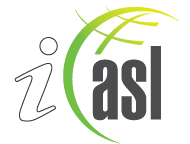

|
|
IASL Research Abstracts: 152
Findings: Although instruction of basic levels of information processes is taking place during the middle grades, there is significantly less emphasis on evaluative aspects of information literacy. Large scale literacy tests do not include items related to information literacy in ICT environments, thus potentially affecting how teachers allot their instructional time.
Abstract: Competencies associated with information literacy are becoming increasingly embedded in literacy policy and curriculum; however, little is known about the extent to which instruction and assessment are aligned with current directives. This paper presents two studies designed to examine the state of instruction and evaluation of information literacy in Canadian public education. Questionnaires and documents were used with teachers and teacher-librarians to learn about instruction, and structured interviews conducted with senior people in departments of evaluation. In light of the findings and broadening concepts of literacy, recommendations for a leadership role by teacher librarians in the new literacies of information are offered. See:
Asselin, M., Early, M., Filipenko, M., and Lam, V. (2005). Literacy in the Information Age: Examining the convergence of information literacy instruction and assessment with theory and policy. In S. Lee, P. Warning, D. Singh, E. Howe, L. Farmer and S. Hughes (Eds.) IASL Reports 2005: Information leadership in a culture of change. Erie, PA: International Association of School Librarianship.
Subject Categories: 5, 10
